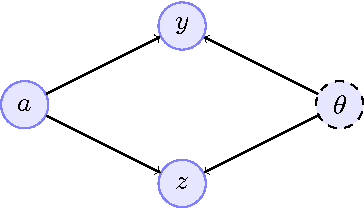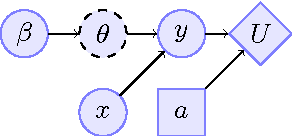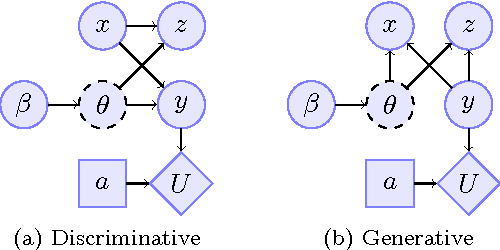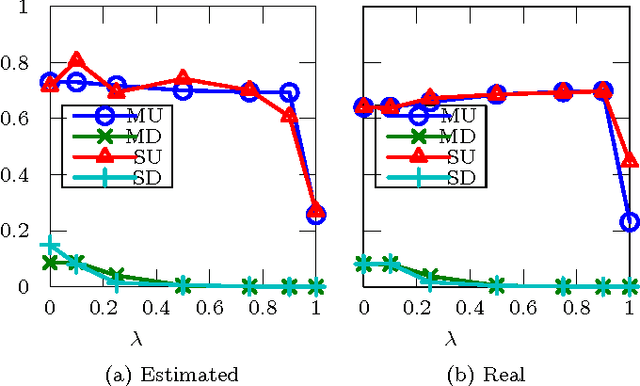Bayesian fairness
Paper and Code
Nov 04, 2018



We consider the problem of how decision making can be fair when the underlying probabilistic model of the world is not known with certainty. We argue that recent notions of fairness in machine learning need to explicitly incorporate parameter uncertainty, hence we introduce the notion of {\em Bayesian fairness} as a suitable candidate for fair decision rules. Using balance, a definition of fairness introduced by Kleinberg et al (2016), we show how a Bayesian perspective can lead to well-performing, fair decision rules even under high uncertainty.
* 13 pages, 8 figures, to appear at AAAI 2019
 Add to Chrome
Add to Chrome Add to Firefox
Add to Firefox Add to Edge
Add to Edge